I didn’t expect to feel so understood here. The outpatient program helped me figure out how to stay sober while still being a college student. I met people my age who actually got it. They could def talk more about balancing school stress, but honestly it gave me hope. I l ...
About NewYork-Presbyterian Allen Hospital Emergency Department
NewYork Presbyterian Allen Hospital Emergency Department is located on Broadway in New York City, New York. The emergency department provides immediate intervention and stabilization for individuals experiencing substance use crisis, overdoses, or withdrawal symptoms.
Consultations and Referrals to Detox and Outpatient Programs
Addiction medicine consultation and referrals are available to you for inpatient detoxification and outpatient substance use programs, via social work and medical staff. Crisis intervention and psychiatric assessment services are also integral to treating co-occurring mental health and addiction treatment services following your acute care.
Complex Medical & Psychiatric Co-Morbities
I find it encouraging to learn that they provide care for patients with medical and psychiatric co-morbidities including those with polysubstance use.
Services are also offered to adults of all backgrounds, with support for diverse populations in the upper Manhattan/Inwood neighborhoods. They also provide bilingual Spanish-speaking services as well as translation services to meet the needs of individuals with diverse cultural backgrounds.
Positive Reviews Including Compassionate Emergency Care
Reviews are positive for services at NewYork Presbyterian ED, including clients referencing high-quality, compassionate emergency care and professionalism. Some note attentive staff in emergency situations, though it’s also noted that wait times can vary due to high demand.
Onsite Lab, Imaging & Pharmacy Services
Due to its location within an emergency setting, they provide onsite lab, imaging and pharmacy services to support rapid diagnosis and care. They also have separate areas dedicated for behavioral emergencies to ensure your safety and privacy in a crisis.
To pay for your services, they accept a wide range of insurance providers including Medicare and Medicaid. Financial programs can be available for those uninsured or underinsured.
Located at the northern tip of Manhattan, you are adjacent to the Harlem River, Fort Tryon Park and Inwood Hill Park, offering water, green spaces and trails suitable for reflection and healing.
Facility Overview
Latest Reviews
Rehab Score
Gallery
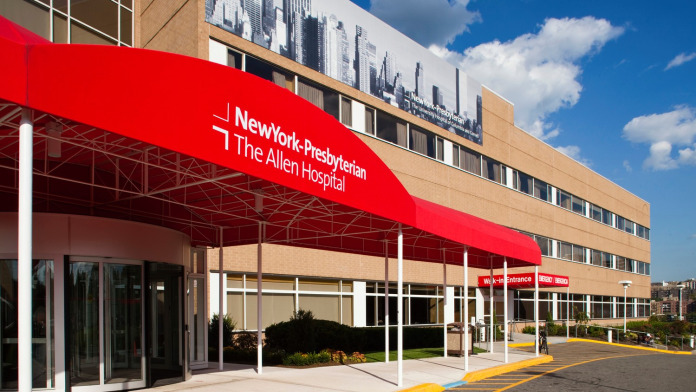
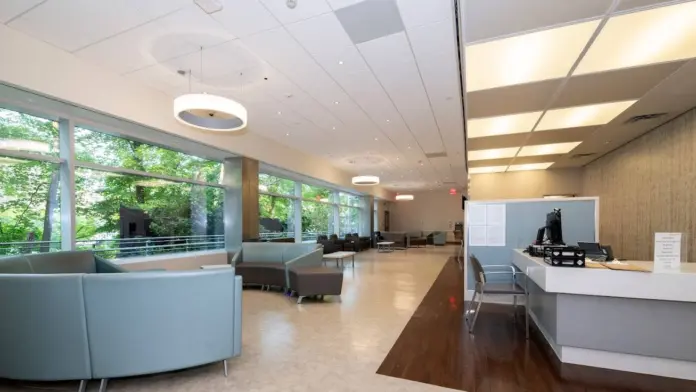
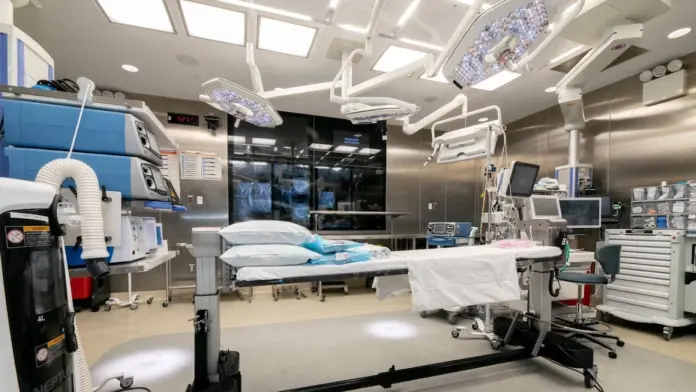
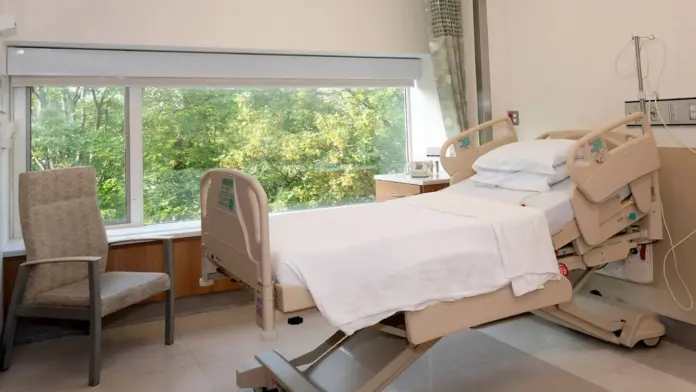
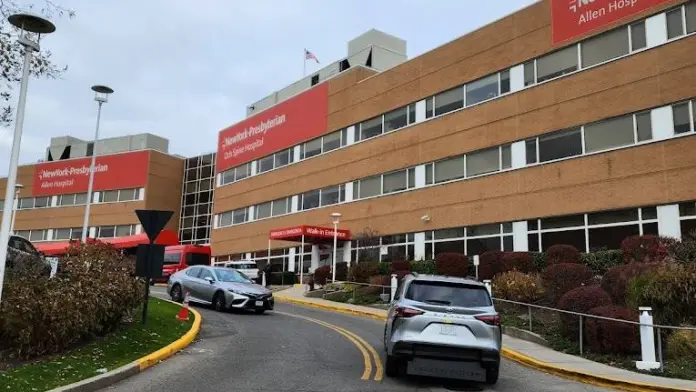
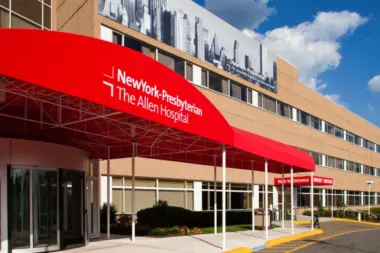
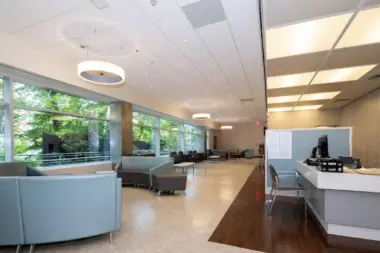
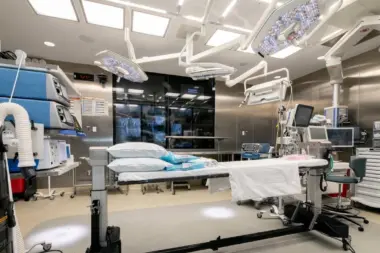
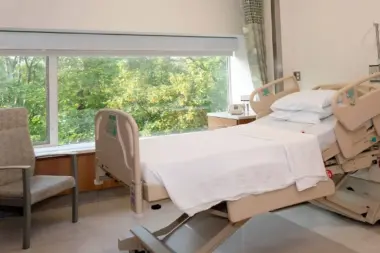
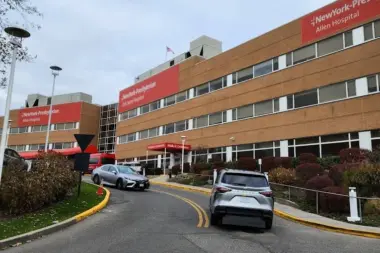
Other Forms of Payment
Self-pay involves paying for treatment out of your own pocket. You can use savings or credit, get a personal loan, or receive help from family and friends to fund your treatment. If you don't have insurance or your insurance plan doesn't cover a specific program, self-pay can help ensure you still get the care you need.
Private insurance refers to any kind of healthcare coverage that isn't from the state or federal government. This includes individual and family plans offered by an employer or purchased from the Insurance Marketplace. Every plan will have different requirements and out of pocket costs so be sure to get the full details before you start treatment.
Medicaid is a state based program that helps lower-income individuals and families pay for healthcare. Medicaid covers addiction treatment so those enrolled can use their coverage to pay for rehab. When a program accepts Medicaid the client often pays very little or nothing out of their own pocket.
Addiction Treatments
Levels of Care
Residential treatment programs are those that offer housing and meals in addition to substance abuse treatment. Rehab facilities that offer residential treatment allow patients to focus solely on recovery, in an environment totally separate from their lives. Allen Hospital Psychiatry Department provides care to adult inpatients admitted voluntarily or who are referred by physicians or family; outpatients treated at NewYork-Presbyterian Columbia University Medical Center who may require additional services as inpatients; adults admitted to their Emergency Department who require further evaluation and comprehensive psychiatric care on an inpatient unit; and patients hospitalized at Allen Hospital for medical/surgical/obstetric conditions who also require psychiatric services.
Treatments
Many of those suffering from addiction also suffer from mental or emotional illnesses like schizophrenia, bipolar disorder, depression, or anxiety disorders. Rehab and other substance abuse facilities treating those with a dual diagnosis or co-occurring disorder administer psychiatric treatment to address the person's mental health issue in addition to drug and alcohol rehabilitation.
Mental health rehabs focus on helping individuals recover from mental illnesses like bipolar disorder, clinical depression, anxiety disorders, schizophrenia, and more. Mental health professionals at these facilities are trained to understand and treat mental health issues, both in individual and group settings.
Programs
Adult rehab programs include therapies tailored to each client's specific needs, goals, and recovery progress. They are tailored to the specific challenges adult clients may face, including family and work pressures and commitments. From inpatient and residential treatment to various levels of outpatient services, there are many options available. Some facilities also help adults work through co-occurring conditions, like anxiety, that can accompany addiction.
Young adulthood can be an exciting, yet difficult, time of transition. Individuals in their late teens to mid-20s face unique stressors related to school, jobs, families, and social circles, which can lead to a rise in substance use. Rehab centers with dedicated young adult programs will include activities and amenities that cater to this age group, with an emphasis on specialized counseling, peer socialization, and ongoing aftercare.
Clinical Services
Cognitive Behavioral Therapy (CBT) is a therapy modality that focuses on the relationship between one's thoughts, feelings, and behaviors. It is used to establish and allow for healthy responses to thoughts and feelings (instead of unhealthy responses, like using drugs or alcohol). CBT has been proven effective for recovering addicts of all kinds, and is used to strengthen a patient's own self-awareness and ability to self-regulate. CBT allows individuals to monitor their own emotional state, become more adept at communicating with others, and manage stress without needing to engage in substance abuse.
Research clearly demonstrates that recovery is far more successful and sustainable when loved ones like family members participate in rehab and substance abuse treatment. Genetic factors may be at play when it comes to drug and alcohol addiction, as well as mental health issues. Family dynamics often play a critical role in addiction triggers, and if properly educated, family members can be a strong source of support when it comes to rehabilitation.
Group therapy is any therapeutic work that happens in a group (not one-on-one). There are a number of different group therapy modalities, including support groups, experiential therapy, psycho-education, and more. Group therapy involves treatment as well as processing interaction between group members.
In individual therapy, a patient meets one-on-one with a trained psychologist or counselor. Therapy is a pivotal part of effective substance abuse treatment, as it often covers root causes of addiction, including challenges faced by the patient in their social, family, and work/school life.
Amenities
-
Private Setting
Contact Information
5141 Broadway
at 220th Street
New York, NY 10034